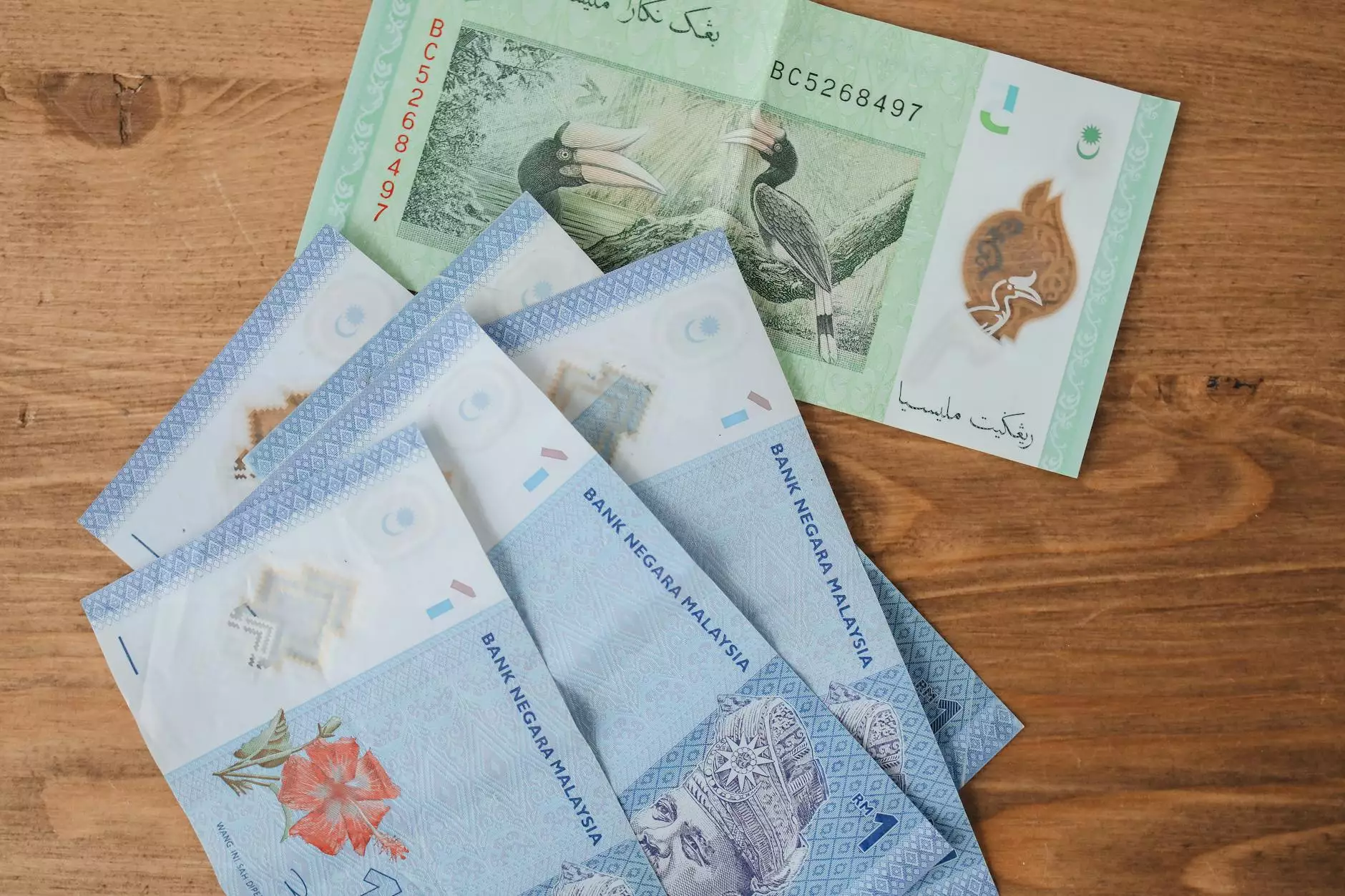The Malaysia Currency Ringgit: Navigating Business Opportunities and Challenges

Introduction to the Malaysia Currency Ringgit
The Malaysia currency ringgit, often abbreviated as MYR, is the official currency of Malaysia. It plays a pivotal role in the country's economy and is a fundamental element in international trade and business transactions. In this article, we will delve deep into the ringgit's significance, its valuation, and the various aspects surrounding its usage in commercial activities.
The Evolution of the Ringgit
The term “ringgit” translates to “jagged” in Malay, originally describing the Spanish dollar, known for its serrated edges. Introduced in 1967, the ringgit replaced the Malaya and British Borneo dollar as part of Malaysia's efforts to establish a distinct national identity following independence from British colonial rule. Over the decades, the ringgit has undergone several changes and enhancements, particularly against the backdrop of global economic shifts.
The Role of the Ringgit in Business
The Malaysia currency ringgit is not only a means of exchange but also a vital instrument for economic stability and growth. Here’s how it impacts businesses:
- Facilitating Trade Transactions: The ringgit is used in all local transactions, enabling businesses to operate smoothly within the domestic market.
- Attracting Foreign Investment: A stable ringgit encourages foreign direct investment, helping to foster industrial growth and diversification.
- Impact on Pricing Strategies: Fluctuations in the ringgit's value can lead businesses to adjust pricing strategies, ensuring competitiveness in the market.
- Currency Exchange Dynamics: Understanding the ringgit's exchange rate dynamics is crucial for businesses engaged in international trade.
Counterfeit Money and Its Impact on the Ringgit
Counterfeit money poses a significant threat to the integrity of the Malaysia currency ringgit. The production and circulation of fake currency can undermine economic stability and consumer trust.
How Counterfeiting Affects Businesses
Businesses, regardless of size, can face severe repercussions due to counterfeiting:
- Financial Losses: Accepting counterfeit bills can result in immediate financial losses.
- Legal Repercussions: Businesses may face legal consequences if found to facilitate the circulation of fake currency.
- Loss of Credibility: Customers' trust can diminish if they perceive a business as a hub for counterfeit transactions.
Preventing Counterfeit Currency
To combat counterfeit money, businesses should adopt rigorous verification processes:
- Use Advanced Technology: Employing high-tech currency validators can help distinguish real from fake money.
- Employee Training: Train staff to recognize security features commonly found in the ringgit.
- Regular Audits: Conduct audits of cash handling processes to minimize risks.
Understanding Fake Documents and Their Relevance
In addition to counterfeit money, fake documents are another concern impacting businesses, particularly in areas such as identity verification and financial compliance. These documents can greatly affect the credibility of transactions and partnerships.
The Consequences of Fake Documents
Engaging with fake documents can lead to:
- Fraudulent Activities: Unscrupulous individuals can use fake documents to conduct fraud, severely impacting businesses.
- Regulatory Issues: Businesses face risks of non-compliance with legal regulations when dealing with forged documents.
- Reputation Damage: A company’s reputation can suffer greatly if associated with fake documents or fraudulent practices.
Preventive Measures for Document Authenticity
To ensure the integrity of documents, businesses can implement the following measures:
- Verification Processes: Establish solid systems for verifying the authenticity of documents received from clients or partners.
- Implementation of Digital Solutions: Embrace digital solutions that provide reliable document authentication.
- Regular Training: Ongoing training for employees on the latest security features and authentication methods.
Impact of Global Economic Factors on the Ringgit
The value of the Malaysia currency ringgit is influenced by several global economic factors, such as:
- Oil Prices: As a significant oil exporter, fluctuations in oil prices can affect the ringgit's strength.
- Interest Rates: Changes in Malaysia’s interest rates directly impact foreign investment and currency valuation.
- Foreign Exchange Reserves: The country's foreign reserves influence the ringgit's market perception.
Business Strategies in a Dynamic Currency Environment
Businesses need to adopt adaptive strategies to navigate the risks associated with currency fluctuations:
- Hedging Techniques: Utilizing hedging strategies can minimize potential losses from currency volatility.
- Diverse Currency Holdings: Holding assets in multiple currencies can help buffer against adverse changes in the ringgit's value.
- Regular Market Analysis: Conducting consistent analysis of market trends allows businesses to make informed decisions.
Conclusion: The Future of the Ringgit in Business
In summary, the Malaysia currency ringgit is a crucial component of the country’s economic landscape. Understanding its features, the risks of counterfeit currency, and the implications of fake documents can help businesses navigate the complex realities of commerce in Malaysia. By implementing effective strategies, adopting technological solutions, and staying informed about global economic conditions, businesses can capitalize on opportunities while mitigating risks. The ringgit may undergo many challenges in the future, but its adaptability and resilience will remain central to Malaysia's economic narrative.









